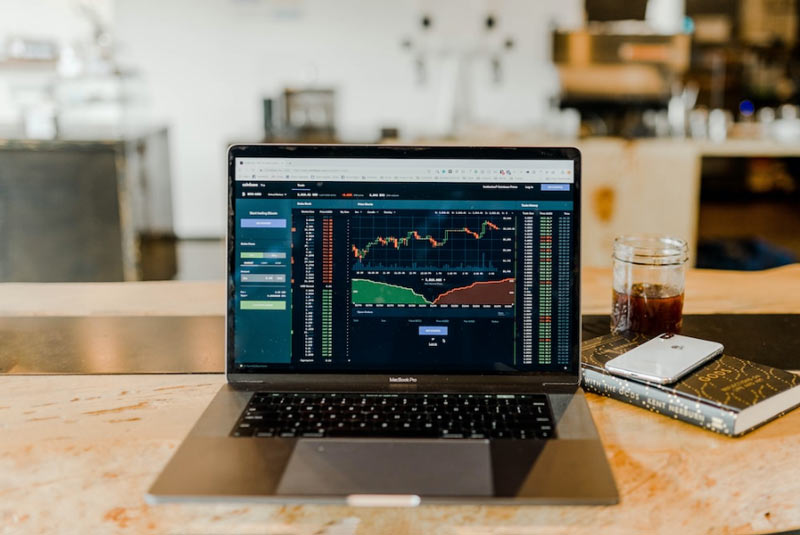Day trading has been an attractive option for investors over the past several years as it provides the potential to make a significant amount of money in relatively short amounts of time.
With day trading, you don't have to buy and hold stocks or wait around hoping something good happens; instead, you can actively trade securities using specialized platforms and speculation strategies to capitalize on market fluctuations quickly. But with its lucrative rewards comes higher risks.
Day Trading and how does it work

Day trading is a form of investing in which stocks, derivatives, currencies, and other financial instruments are bought and sold within the same trading day. This means that all positions must be opened and closed within 24 hours.
Day traders use various strategies to take advantage of short-term market price fluctuations with some traders aiming for profits as small as a few cents per share. To make money, day traders must understand how to manage risk effectively and have an effective strategy for entering and exiting trades.
How much can you make from day trading?

The money you can make from day trading will depend on your experience level, risk tolerance, capital availability, and market knowledge. Generally speaking, experienced day traders can make anywhere from a few hundred dollars to tens of thousands in profits – with some making six figures or more. However, it’s important to note that success doesn’t happen overnight, and your money will depend largely on your ability to manage risk and consistently outperform the market.
As such, aspiring day traders should understand that it is not enough to simply buy or sell randomly; they must also understand market trends and develop their own strategies. Proper research, analysis, and education are essential for anyone hoping to make a living out of day trading. Day traders must approach their investments methodically and logically to ensure consistent profits rather than relying on luck or guesswork.
Different types of trades and strategies
Depending on their goals and risk tolerance, day traders can pursue different strategies to maximize their profits. Some popular day trading strategies include scalping, momentum trading, swing trading, news-based trading, and arbitrage.
- Scalping is a trading strategy focusing on taking advantage of small price changes in a short period, usually within minutes or hours.
- Momentum traders aim to capitalize on price movements that occur when asset experiences increased buying or selling pressure.
- Swing traders look to benefit from the swings (ups and downs) in the market by holding onto positions over longer periods, typically days or weeks.
- News-based traders take advantage of events that can cause market volatility, such as economic data releases or earnings announcements.
- Arbitrage traders look for differences in prices between assets and use them to their advantage by simultaneously buying and selling different securities simultaneously for a profit.
These strategies have advantages and drawbacks, so it’s important to consider which is right for you before making any trades.
Benefits of Day Trading
Day trading can offer several advantages over traditional forms of investing. Here are some of the key benefits:
- Access to leverage – Day traders often have access to leverage, meaning they can borrow money at low-interest rates to increase their buying power and potentially earn larger profits.
- Low costs – Commission fees for day traders are typically lower than those for long-term investors, making it a less expensive way to trade.
- Quick decisions – As a day trader, you’ll be able to act quickly on market opportunities and take advantage of short-term price fluctuations as soon as they arise.
- Flexibility – With day trading, you can choose when you want to trade, so you can take time off when needed or work around other commitments.
- Low risk – Because day traders typically close their positions within a single day, they are exposed to less market risk than those who hold positions for longer periods.
- Portfolio diversification – Day trading can help to diversify your portfolio by providing exposure to different markets and asset classes that you may not be able to access through traditional investments.
- Tax advantages – Certain trades, such as those made in an IRA account, can offer tax advantages that long-term investors don’t enjoy.
- Control over your capital – As a day trader, you have complete control and can choose when to buy or sell without worrying about someone else making decisions on your behalf.
Day trading may only be suitable for some, but the potential rewards can be substantial if approached in a disciplined manner. With proper education and research, day traders can maximize their chances of success and enjoy the many benefits this type of investing offers.
Drawbacks of Day Trading
Despite the potential rewards, day trading also carries certain risks and drawbacks. Here are some of the key risks to consider:
- High levels of risk – Day traders take on higher risk levels because they often open and close positions in a matter of minutes or hours, meaning their capital is exposed to greater volatility.
- Intensive activity – Day trading requires intense focus and concentration, making it difficult to maintain over extended periods without burning out or losing motivation.
- Market knowledge – The markets can be unpredictable, so success as a day trader requires an in-depth understanding of market trends and dynamics to make informed decisions.
- Capital requirements – To become a profitable day trader, you’ll need access to sufficient capital to make trades that have the potential to generate a profit.
- Psychological barriers – Day trading can be stressful and demanding, so managing your emotions and staying focused on long-term goals is important.
Day trading requires dedication and discipline, but it can also offer significant rewards for those willing to take risks if approached cautiously. It is important to weigh the pros and cons of day trading before taking any market positions. With proper education and research, traders can minimize their losses while maximizing their gains when they engage in this type of investing.
FAQS
Can you make a living as a day trader?
Yes, it is possible to make a living as a day trader. However, like any form of investing, success depends on dedication, discipline, and managing risk effectively. Day traders must also have sufficient capital and access to the right resources to be successful.
How hard is day trading?
Day trading can be challenging and requires focus, dedication, and discipline. To be successful as a day trader, you must understand the markets and how they operate to take advantage of opportunities when they arise. This requires both knowledge and experience.
Why are day traders, not millionaires?
Day trading is a risky activity, and it's common for traders to experience losses and gains. Many day traders don't become millionaires due to the high levels of risk associated with this type of investing, as well as the need for sufficient capital to generate returns that are significant enough to make them wealthy.
Conclusion
It is no secret that day trading can be lucrative, though it also comes with high risks. Overall, the potential reward justifies the risk of undertaking such a challenge. We hope our guide to understanding how many days traders make has been useful and has potentially enabled you to learn more about this popular field.




